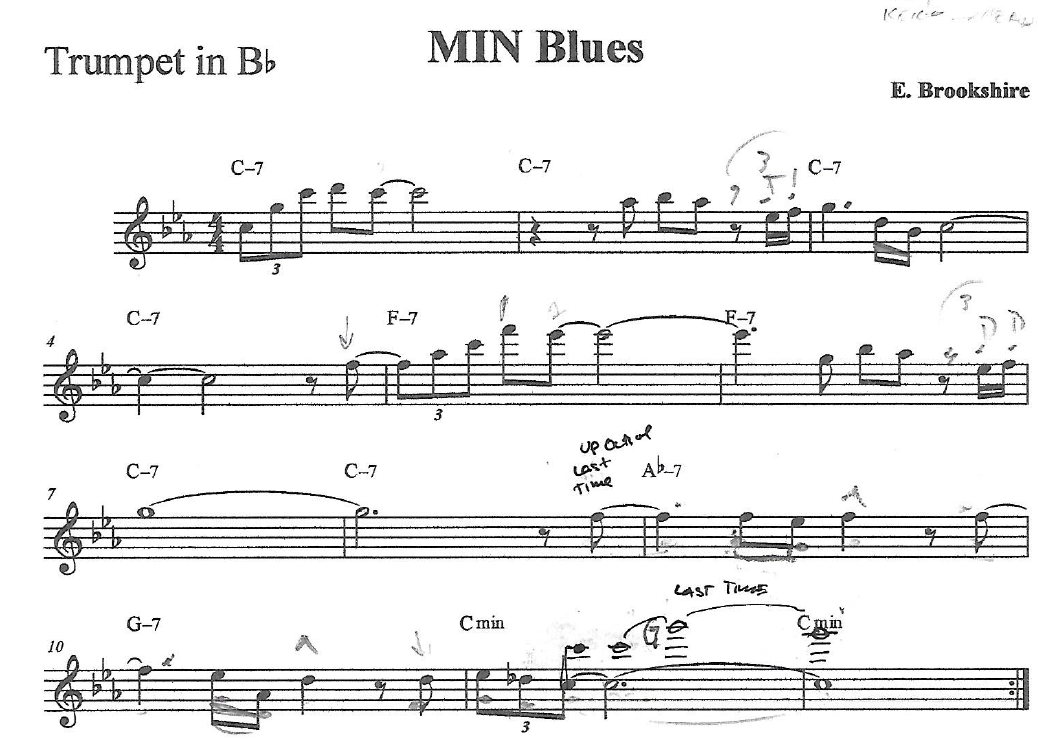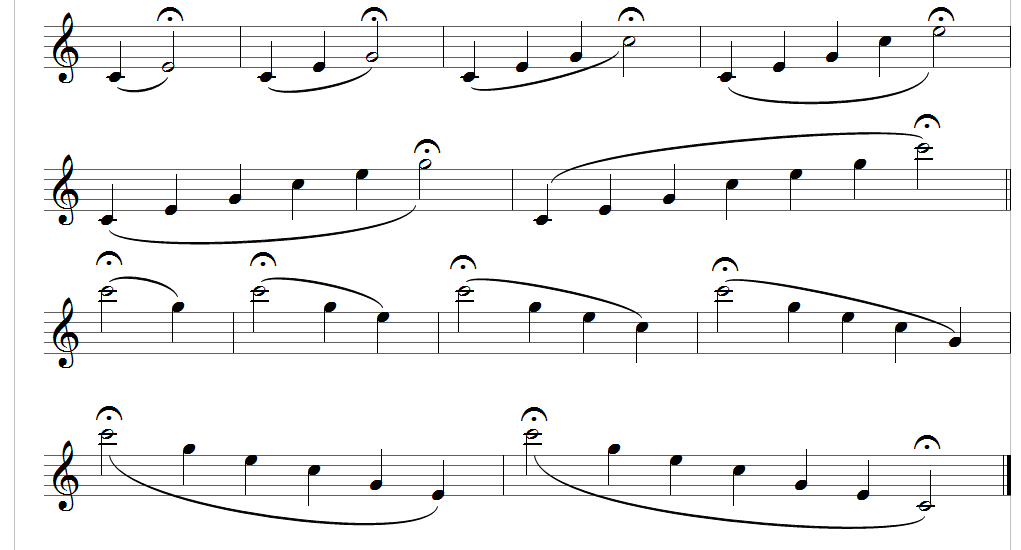Help! I need to hit that high note!
-
High note advice soon to come...
-
Perhaps we should end the discussion now on a high note before all that conflicting advice begins to pour in!
-
To hit high notes I recommend applying Vice-Grips pliers to the testicles.
Let me know if it works so I'll know whether to try it.
moshe
-
Louis Prima had the answer back in the 50s: High Note Grease.
(The Lip.) -
@Dr-GO said in Help! I need to hit that high note!:
Perhaps we should end the discussion now on a high note before all that conflicting advice begins to pour in!
And there we have it folks, just as predicted.
-
I am trying to fill this site with legitimate advice. If you have any regarding high notes, you can post it to the high note sticky thread that I created.
First and foremost, I want TB to be a welcoming trumpet site with beneficial and accurate content. At least we have the former so far.
-
Also, please backup statements on that thread with sources. If you are an expert yourself, state your qualifications.
-
@Kehaulani said in Help! I need to hit that high note!:
Louis Prima had the answer back in the 50s: High Note Grease.
(The Lip.)Interesting in that the notes hit here are really not that high. I guess it's all relative to the 50's. Today's high note players take these notes one or two octaves higher. So trumpet players have evolved to the current decades with better techniques and better instruments. From Homo Erectus to Double High Homo C-lectus. We have indeed evolved!
-
@administrator said in Help! I need to hit that high note!:
....If you are an expert yourself, state your qualifications.
My qualifications: I arranged this song written by our band leader on our first CD. There are ONLY two horns, a trumpet and tenor. The harmonies I arranged fattened the horn lines up so it sounds like more. The trumpet part hangs above staff about 45% of the written part.
I submit for proof of high note qualifications:Minor Blues:

How do I do it? Here is the secret. I practice.... A LOT!
PS: This recording was performed on my Olds Recording... which has much resistance in this upper register. Not the best piece of equipment for the job in sustained upper register work. I did have assistance here with the Jettone Studio B. That helped!
Other soloists: Jack Novotny - Tenor Sax; Kenny Drew Jr - Piano -
Practice, practice, practice. This is why and here are the tasks to achieve:
- Build lip muscle for CONTROL. This assures adequate vibration to "sing" the notes
- Build chest and abdominal muscle to support the note (so you don't pinch from the upper airway; this closes it off)
Do these two major things and the third ESSENTIAL component follows: - RELAX. Do not pinch off the airway that you lower body muscles support and that the lips control.
-
Well, I'm not quite sure what you want but I'll just contribute this and it's personal. What works for one doesn't always work for another.
In my first generation of trumpet playing I just was average. Played better than a lot at North Texas, not as good as others. Then I concentrated on writing and then on conducting, taking a long hiatus from playing. When I did get back to playing, it was on woodwinds (ww), not trumpet. I eventually came back to brasses.
One psychological thing was a carry-over from ww playing and that is, instead of a bunch of gyrations getting upper octave on WWs, you just moved your thumb. Yeah, you made a little adjustment but compared to what I had previously done on trumpet, it was easy and simple.
So, when I returned to trumpet, I used the same psychological concept. Keep it (octave jumps) easy and just think of flipping a switch, not going through muscled gyrations. That concept of playing easily served me well.
Pedagogically, I went to Jeff Smiley's The Balanced Embouchure and Maggio's book and system. My range went from the former workable range of A above the staff and a possible High C, to a workable E above High C and a playable Double High C.
I don't know if I expressed this well, but the point is playing with the least possible strain.
-
Well I practice like hell but a playable B above the staff is pretty much it for me, there are times when even it is pretty darn iffy. Fortunately there are two of us playing first in our band and he is younger and has better range so I will sometimes drop an octave and let him have the glory.
On a lighter side: I am doing a search on Google to see if someone carries that High Note Grease in Extra Strength so I can show off to my playing partner as I play a double high C or two.''

-
You can have the strongest embouchure in the world
and still not be able to play above the staff if you are using the wrong technique for your embouchure type.
All through Junior High School I struggled to play an F on top of the staff.
Then my friend told me that he thought I was an upstream embouchure type.
I made the adjustment, plus started using less mouthpiece pressure and started playing softly and abandoned those shallow mouthpieces in which I bottomed-out.
After a few months I was playing Double C's.
So there were actually several factors involved.Sounds like crap on a flugel mouthpiece,
but the point is that it was done at all:moshe
-
A good exercise.

-
@Vulgano-Brother said in Help! I need to hit that high note!:
A good exercise.

OK... But WHERE are the high notes?

-
Transpose up!
-
I have used Stamp exercises (especially 4 & 5) to great effect to improve my range. However, it always takes time. Overnight range is like eating at McDonald's...quick and convenient, but you pay for it later.
-
@Dr-GO said in Help! I need to hit that high note!:
@Vulgano-Brother said in Help! I need to hit that high note!:
A good exercise.

OK... But WHERE are the high notes?

8VA!!!!
-
@Tobylou8 said in Help! I need to hit that high note!:
OK... But WHERE are the high notes?

8VA!!!!
Yes... I should have had a V8... to go with my HiC!
-
I have exclusive rights to 8VB whenever I want.